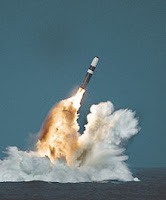The New York Times reports on
an innovative approach Kansas environmentalist have taken to get climate change deniers involved in reducing energy use. Kansans tend to be religiously and politically conservative, and suspicious of "big government," climate change scientists, and Al Gore. They have, therefore, been reluctant to respond to the challenge of global warming, many considering it just a natural cycle or even a hoax perpetrated by scientists.
Rather than give up on this benighted population, a small nonprofit group, the
Climate and Energy Project, has developed an ingenious approach to gain their co-operation in reducing fossil fuel emissions. To begin with, as Nancy Jackson, chairwoman of the group, says, “ [we] don’t mention global warming, and don’t mention Al Gore.” Instead, they talk about reducing energy consumption for other reasons, such as thrift, patriotism, economic advantage or spiritual conviction, thus divorcing the issue from climate change politics.

The group initiated a competition among six Kansas towns to improve energy efficiency. They pointed out the value of keeping costs, thus taxes, down. They emphasized reducing U.S. dependence on foreign oil and showed how green jobs can help support the economy and even prevent the decline of small towns. Ms. Jackson talked to local ministers about “creation care,” the obligation of Christians to act as stewards of the world that God gave them, and even provided sermons they could download from the Web.
The towns included in the competition reduced their energy use up to 5 per cent relative to other areas, a considerable success. One farmer, a climate change doubter, was so taken by the possibilities of wind power, he organized a group of local leaders who then convinced the Siemens energy company to build a wind turbine factory in the area. Siemens has promised to create up to 400 local jobs, farmers in the area will gain another source of income by leasing land for wind turbines, and land prices are rising.
What is most encouraging, even inspiring, about this breakthrough in Kansas, is not simply the benefit for the environment, although that is of great importance, but rather what appears to be two irreconcilable positions coming together by finding common ground and going on to achieve something of real value. We need a great deal more of this in all areas of public concern.
Unfortunately, it's much easier to self-righteously rant (as we bloggers tend to do) than sit down with people you generally disagree with and work out something that will work for everyone, albeit for different reasons. And unfortunately politics tends to increasingly focus more on division than compromise, with its exploitation of wedge issues, attack ads, and other instruments of hostility. Politicians and political junkies can learn from the Kansas example, both about turning people on to politics and about getting things done.
 Actually the codes cannot in themselves be used to launch an attack. They are required to open the briefcase holding yet another set of codes needed to launch nuclear missiles. The briefcase is always accompanied by a military officer and kept close to the president.
Actually the codes cannot in themselves be used to launch an attack. They are required to open the briefcase holding yet another set of codes needed to launch nuclear missiles. The briefcase is always accompanied by a military officer and kept close to the president. 







